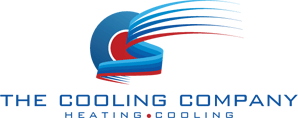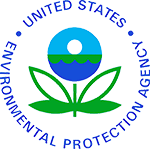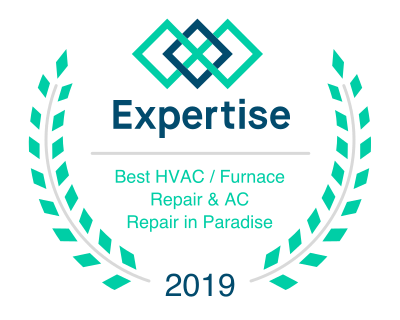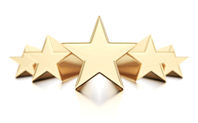It’s a topic of increasing concern and warrants a fine balance between the two. Recent studies by the World Health Organization link energy costs and indoor air quality, indicating our environments have a significant impact on our life.
This article aims to explore the topics of the benefits of improving your home’s indoor air quality, as well as energy efficiency measures – a multifaceted endeavor that goes beyond the mere pursuit of energy efficiency and reduced utility bills. In our urban cities, meeting the increasing demand for sustainability and health needs a level of information awareness and practical action. While the role of a more efficient air conditioning unit, modernized HVAC systems, and other energy-efficient appliances in lowering electricity costs is widely acknowledged, the additional advantages of enhanced air quality—often achieved using advanced solutions—are often overlooked, yet they are significant and impactful.
When you implement solutions to improve the air quality in your homes, such as leveraging state-of-the-art HVAC systems for proper ventilation or using an air purifier, you’re not just making a cost-saving decision; you’re also investing in a fresher, healthier, and more comfortable living environment. Advanced filtration systems play a crucial role in removing air pollutants and chemicals, purifying your air and also eliminating various unhealthy odors and possibly harmful mold spores that were previously a constant presence in your home. These systems, working in conjunction with natural freshness from open windows, promise not just savings but dramatically enhance the indoor environment.
Enhanced indoor air quality also translates to better sleep and an overall better quality of life. If you’ve ever found yourself waking up coughing in the middle of the night due to dust particles, it’s a clear indication that controlling your indoor environments can greatly impact your sleep quality. This is where humidity control comes into play, balancing-out factors such as temperature and air quality.
Another solution to improve air quality is the balancing of your home’s humidity. This demand for comfort in our living spaces becomes evident when too much moisture in the air combined with an inappropriate temperature can make breathing difficult and leaves everything feeling damp and uncomfortable. Ensuring the right level of humidity by using a quality air filtration system and proper HVAC systems will make your home feel more comfortable and easier to breathe in.
Perhaps one of the most significant advantages of these energy efficiency measures, especially for those with allergies, is the removal of potential allergens from the air. Your home might contain various allergens from pets, insects, and other sources that all cities have, leading to discomfort or even health issues. By improving the air quality using purifiers and proper ventilation, you’re also reducing the presence of these allergens, leading to fewer allergic reactions.
To achieve these benefits, it’s essential to adopt a proactive approach. The World Health Organization suggests regularly changing your air filters, maintaining your appliances, ensuring your insulation is up to standard with the right materials, and considering the installation of special filtration systems can make a substantial difference in the health and energy costs in homes worldwide.If you’re unsure where to start in condition-proofing your home against indoor air illnesses, or you’re looking to reduce your home’s carbon footprint, consulting with a reputable HVAC company can provide you with the guidance and strategies needed to ensure your home’s air is as fresh and healthy as possible, factoring in all variables. The fact is, these specialists have the knowledge and resources to factor in all kinds of situation-specific nuances, from cutting down on greenhouse gas emissions to combating problematic pollen levels.
Here are some of the main benefits that you will get when you take the right steps towards improving indoor air quality and adopting energy efficiency measures:
Reducing Odors in Your Home
In addition to enjoying a lower electricity bill each month due to significant cost savings from energy-efficient appliances, you will also relish in a cleaner smelling, fresh home. The advanced filtration systems that will be installed to keep your air quality better will also eliminate the odors that were present in your home before. This is largely due to effective sealing of the home to prevent pollutants from seeping in. While it may take a week or so for any odors to be completely removed, but you will definitely notice the change after some time. Your guests, too, will take note of the noticeable improvements in your home’s ambiance.
Being Able to Sleep Better
If you have ever found yourself waking up in the middle of the night coughing, it’s probably due to inhaling dust particles throughout the night, which have accumulated due to ineffective HVAC systems in the building. Therefore, the solution ought to be a focus on improving the performance of these systems to ensure cleaner air in your living space. In fact, poor indoor air quality is known to contribute to deaths from respiratory illnesses. Achieving cleaner air can be made a reality through a brilliant strategy involving the use of cutting-edge resources and advancements in heating and cooling technology.
One of the effective ways to enhance indoor air quality, within the range of efficient measures like ventilation systems, is to ensure the humidity in your building is regulated. Structures with excessive moisture in the air become suffocating zones, making them tough to breathe in, especially for those suffering from conditions like asthma. Regulating the indoor environment can help reduce the carbon footprint while improving the health of the house occupants.
Balancing Out the Humidity
One of the main benefits of maintaining quality, clean air in your building is the elimination of particles which previously caused allergic reactions. Various allergen sources such as spiders, roaches, animals, and other elements can release airborne allergen particles in your building. This underscores the importance of clean air in reducing allergens and other health hazards indoors, helping to safeguard your health.In considering the connection between rising temperatures and the high concentration of allergens, one might glean key takeaways on the impacts such factors may trigger adverse reactions in your body. Prolonged heat and exposure to these allergens might lead to problems in your health, stunting your overall growth and affecting productivity.
Removing Potential Allergens from the Air
Equipped with efficient air filtration technology, we can see a noticeable decrease in allergic reactions, even amidst the heat. Not only will irritants that make your eyes watery and your throat itchy be significantly reduced, but sneezing and congestion will also be minor issues. The conclusion here is that this improvement is vital as even individuals without specific allergies can experience negative health repercussions from inhaling too many allergen particles or from exposure to smog. These adverse effects can significantly impact productivity and health standards of both adults and children alike, hence the need for compliance with air quality regulations.
If you’ve noticed that your building’s air quality falls short of acceptable standards, possibly due to increased temperatures or smog, it would be wise to take all possible measures. This might include changing your existing filters and adding special filtration systems that purify the air before it gets pushed through your vents. Making such an investment in areas like Las Vegas, where some highly recommended HVAC companies provide these services, is key. The integration of these advancements not only contributes to achieving energy savings but also betters your living standards by offering a comfortable and healthy environment – a takeaway that’s hard to ignore.












